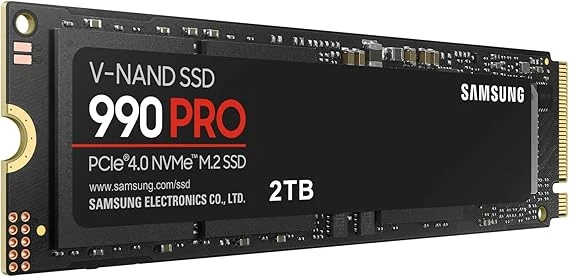If you’re an engineering student or a working professional, there’s one upgrade that can change your entire laptop experience overnight: a solid-state drive (SSD). Whether you’re juggling massive CAD files, running MATLAB simulations, or rendering 3D models, the speed of your storage makes a huge difference.
Let’s break down the best SSDs for engineering laptops in 2025, and help you pick the right one for your needs and your budget.
🧠 Why SSDs Matter for Engineering
Here’s the deal—engineering software is heavy. Whether you’re using AutoCAD, SolidWorks, Ansys, or even Visual Studio, these apps load big files and generate tons of temporary data. If your storage is slow, your whole system slows down.
That’s where SSDs come in. A modern NVMe SSD can make your laptop feel 3x faster—booting in seconds, loading projects instantly, and reducing lag during simulations.
And in 2025, PCIe Gen 4 and Gen 5 SSDs are the new normal. They offer insane speeds, up to 14,000MB/s, and can handle even the most demanding workloads like a champ.
🏆 Best SSDs for Engineering Laptops in 2025
1. Samsung 990 Pro – Best Overall Performance

- Interface: PCIe 4.0 NVMe
- Speeds: Up to 7,450MB/s read, 6,900MB/s write
- Why it rocks: Super-fast, reliable, and doesn’t overheat under pressure. It’s trusted by engineers, gamers, and creators alike. Perfect for everyday use, heavy CAD work, and multitasking.
⭐ Ideal for: Engineering students, architects, mechanical engineers.
2. Crucial T705 – Blazing-Fast Gen 5 Power

- Interface: PCIe 5.0
- Speeds: Up to 14,100MB/s read
- Why it rocks: If your laptop supports PCIe Gen 5, this is a monster. Ultra-fast, perfect for simulations, video rendering, and AI development. Not the cheapest, but arguably the fastest.
⭐ Ideal for: Power users, data scientists, simulation-heavy workloads.
3. Crucial P5 Plus – Best Bang for Your Buck

- Interface: PCIe 4.0
- Speeds: Up to 6,600MB/s
- Why it rocks: Affordable, fast, and widely compatible. It gives you top-tier Gen 4 performance at a reasonable price. Great upgrade for older laptops that support Gen 4.
⭐ Ideal for: Engineering students on a budget, general use.
4. WD Black SN850X – For Gamers & Engineers

- Interface: PCIe 4.0
- Speeds: Up to 7,300MB/s
- Why it rocks: It’s not just for gamers. The SN850X handles large file loads like a pro. Whether you’re gaming or modeling a complex part, it won’t let you down.
⭐ Ideal for: Game developers, multi-use professionals.
5. TeamGroup MP44 – Budget-Friendly Yet Fast

- Interface: PCIe 4.0
- Speeds: Around 7,400MB/s
- Why it rocks: It’s surprisingly fast for its price. Ideal for budget builds or students upgrading older laptops without spending a fortune.
⭐ Ideal for: Budget-conscious students, entry-level engineering users.
🔍 What to Look for in an Engineering Laptop SSD
Here’s a quick checklist when shopping for an SSD for engineering:
| Feature | Why It Matters |
|---|---|
| PCIe Gen 4/5 | Higher bandwidth = faster file access |
| High IOPS | Faster random reads/writes = better multitasking |
| Thermal Management | Prevents throttling during long workloads |
| Capacity (1TB+) | You’ll need space for software, projects, backups |
If your laptop supports PCIe Gen 5, future-proof it with a Gen 5 SSD. If not, Gen 4 is still more than enough for 99% of tasks.
💻 Engineering Laptops with Great Built-in SSDs (2025)
Some laptops come with these top SSDs already installed. Here are some engineering favorites in 2025:
- ASUS ProArt Studiobook 16 OLED – Ships with 2TB Samsung SSD. Great for CAD and 3D rendering.
- Dell XPS 17 9740 – Gen 5 support, sleek design, and powerful internals. A favorite among engineering grads.
- Lenovo ThinkPad P16 Gen 2 – Rugged build, dual M.2 slots, and up to 8TB SSD capacity.
🧰 Final Thoughts
If you’re into engineering, your storage speed matters a lot. Don’t settle for outdated SATA drives or small-capacity SSDs that slow you down.
👉 Go for Gen 4 or Gen 5 NVMe SSDs for the best experience.
👉 Stick to trusted brands like Samsung, Crucial, WD, and TeamGroup.
👉 Choose at least 1TB—you’ll need it for big files and apps.
With the right SSD under the hood, your engineering laptop won’t just perform better—it’ll fly. And in 2025, that speed can be the difference between meeting a deadline or missing one.
Frequently Asked Questions
I’d say go for at least a 512 GB SSD—gives you room for your OS, apps like CAD and MATLAB, plus plenty of project files. If you can swing a 1 TB, even better—future-proofs you for big simulations and data sets. Anything under 256 GB feels cramped pretty fast.
Honestly, go with an NVMe PCIe SSD—ideally Gen4 or Gen3 if you’re on a budget. They’re way faster than old SATA drives, boot up in seconds, and handle big files like a breeze. Brands like Samsung and WD have solid options that won’t break the bank. Plus, they sip power, so your battery won’t cry.
Honestly, comparing M.2 and NVMe is like apples and oranges. M.2 is just the SSD’s shape, whereas NVMe is the high-speed protocol it speaks. If you’re after raw performance, an NVMe SSD in an M.2 slot absolutely stomps any old SATA drive.
Oh, absolutely—if you’re comparing a PCIe-based M.2 NVMe drive to a 2.5″ SATA SSD, the M.2 annihilates it in speed. You’ll see read/write rates north of 3,000 MB/s on NVMe versus around 550 MB/s on SATA. In everyday use, that means quicker boots, faster app loads, and snappier file transfers.











